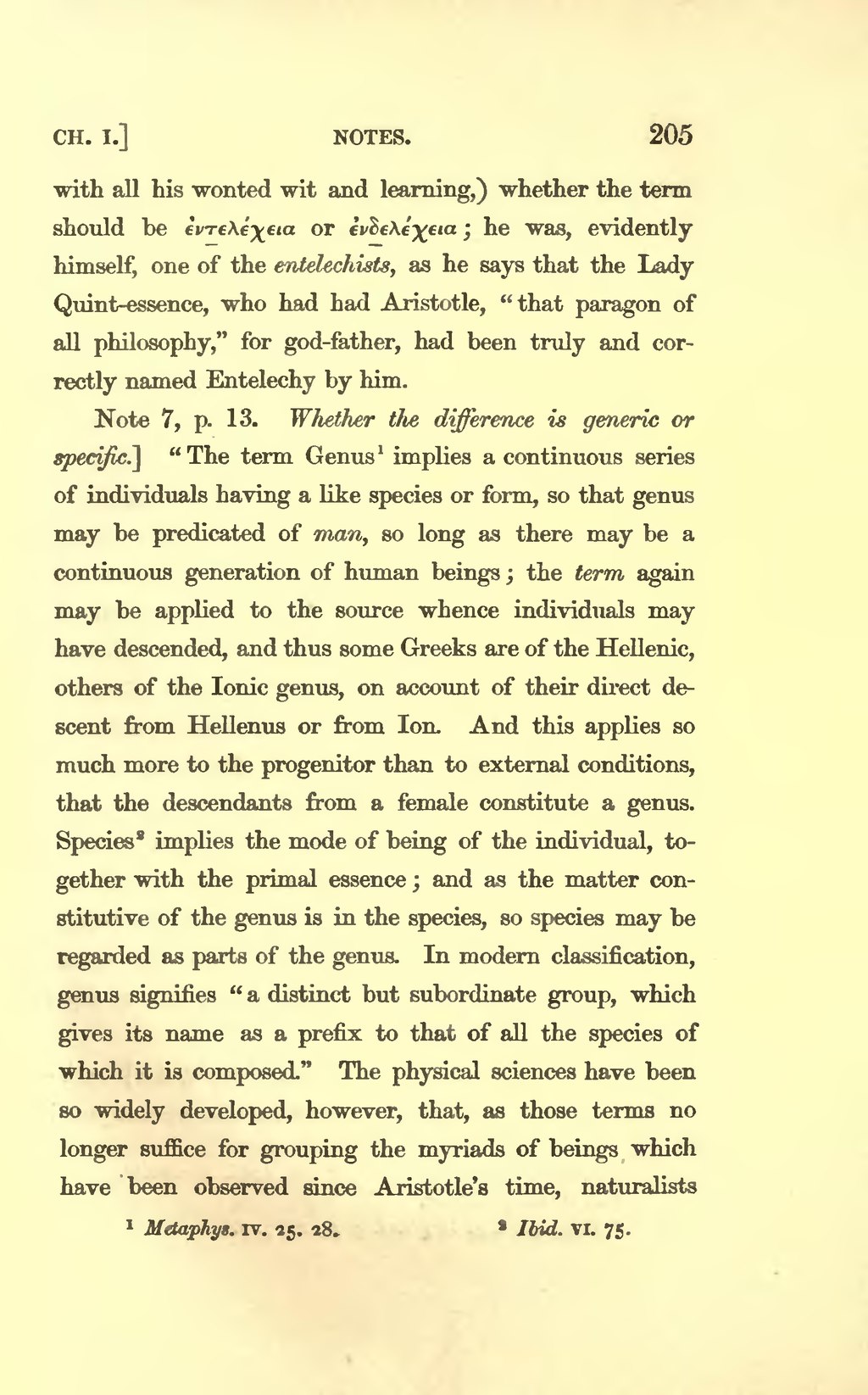with all his wonted wit and learning,) whether the term should be ἐντελέχεια or ἐνδελέχεια; he was, evidently himself, one of the entelechists, as he says that the Lady Quint-essence, who had had Aristotle, "that paragon of all philosophy," for god-father, had been truly and correctly named Entelechy by him.
Note 7, p. 13. Whether the difference is generic or specific.] "The term Genus[1] implies a continuous series of individuals having a like species or form, so that genus may be predicated of man, so long as there may be a continuous generation of human beings; the term again may be applied to the source whence individuals may have descended, and thus some Greeks are of the Hellenic, others of the Ionic genus, on account of their direct descent from Hellenus or from Ion. And this applies so much more to the progenitor than to external conditions, that the descendants from a female constitute a genus. Species[2] implies the mode of being of the individual, together with the primal essence; and as the matter constitutive of the genus is in the species, so species may be regarded as parts of the genus. In modern classification, genus signifies "a distinct but subordinate group, which gives its name as a prefix to that of all the species of which it is composed." The physical sciences have been so widely developed, however, that, as those terms no longer suffice for grouping the myriads of beings which have been observed since Aristotle's time, naturalists
